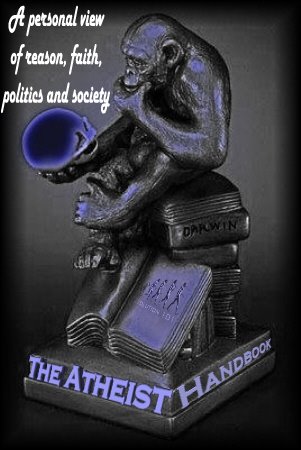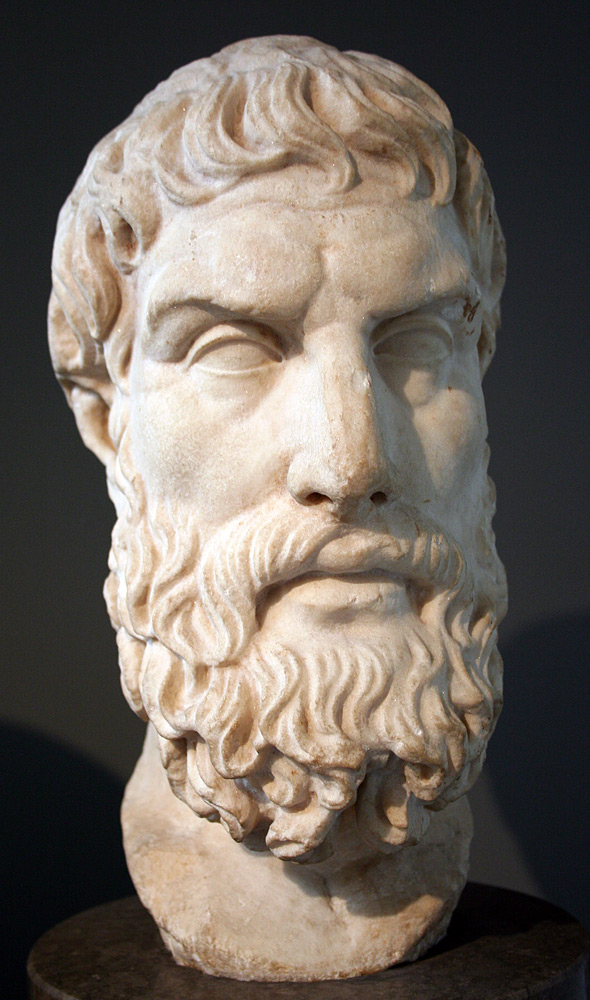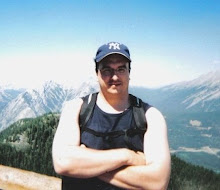
It all began with a question.
In the history of big ideas and probing questions, it certainly caused not a tremor, but to my little mind at the time, it was the most important question ever asked.
Father, how did Noah get penguins?
Like I said, not exactly earth shattering in the grand scheme of things, but of tremendous importance to me.
The question was asked in a grade 6 religion class at St. Jude elementary school in Calgary, Alberta and was first glimmer of deductive reason I can clearly remember. It was the result of a fairly bland series of events that essentially radicalized my mind.
A few days before the question was asked, I was given my first "real book." Not a comic book, or child's story book, but a science book. It was a paper back called "The First Men in the World", written by Ann Terry White. I still have it today. It was given to me by my cousin Ricky Hoffman, and I devoured it. Although dated by today's standards, it was my introduction to the history of the human species, of "cave men." I was fascinated by the image of these prehistoric men with none of the technology of the 20th century, armed only with primitive tools, using their wits to survive in a world populated by sabre toothed predators. It was also a vastly different story than I was being told in school. Science classes taught nothing about prehistoric humans. But in religion class we learned about Adam and Eve, original sin, and the garden of Eden. In my minds eye, Adam and Eve and their descendants lived not much differently than we did. Maybe they didn't have television, but they had some kind of house and had clothes and and so on. They certainly didn't have to worry about being eaten by a great cave bear. Essentially, they seemed more modern than the cave men of White's book. It seemed clear to me that White cave men were fighting to survive long before Adam and Eve encountered a snake in a tree.
In short, I began to suspect that I was not being told the whole story in school.
Not long before Ricky gave me that book, I had watched a show on television about penguins. According to the program, Ferdinand Magellan was the first to discover penguins - which to him must have been a bizarre bird. It had to be skinned instead of plucked and was dubbed a "black goose". Penguins, the narrator of the show said, lived mostly Antarctica, first seen by the Russian explorer Fabian Gottlieb von Bellingshausen in 1820.
And so came the religion class and the question.
We had a priest in class that day and he was telling us about Noah's Arc. You know the story. God gets hacked off at the world, decides to drown out every last man, woman and child save for Noah and his immediate family. He orders Noah to build a big ass boat, and in put to two of every animal in the world to spare them from the flood. (A curious request really, since God should have just be able to recreate the creatures he slaughtered....but that is a discussion for later) The priest was quiet clear on this. Noah got all animals - bears, tigers, snakes, even little bugs.
All animals.
So I put up my little hand while the priest was going on about the dove and the rainbow and how Noah released the animals to repopulate the world.
Father, how did Noah get penguins?
At first, the priest looked a little perplexed, and asked me to repeat the question.
Father, how did Noah get penguins?
What did I mean, the priest asked.
"Well," I said, standing at attention beside my desk. "I saw this show on tv, and the guy on the show said penguins only live in the south pole, and that a guy from Russia was the first guy to go there. So how did Noah get penguins?"
The priest continued to look dumbfounded and before he could say anything, I said that if the fellow from Russia was the first person to see Antarctica, that means Noah never saw it. And if Noah never saw it, then he was never there, which means he never saw penguins. So, that being the case, how did Noah get penguins?
At this point the priest began to talk about the mysteries of how God worked, and that if God wanted Noah to get penguins, Noah could get penguins. To my 11 year old brain, that answered seemed evasive, even dishonest.
Now, it is probably never wise to completely trust one's childhood memories and things look much different through the lenses of adult eyes. Looking back, I am fairly certain the priest, whose name I do not even recall, was not talking down to me or trying to be evasive, let alone dishonest. But to 11-year-old Grant, that is exactly how it seemed.
I began to get angry. I refused to sit down, and insisted on an answer that made sense, unaware that such an answer simply and plainly does not exist. Finally, frustrated and angry, I slammed my hand down on the table and shouted, "Either the tv show is lying or the bible is lying I want to know the truth!" I received four days of detention for that outburst.
That incident stayed with me to this day and was my first encounter, one of many, with the unreason of religious faith, of it inability to answer complex questions about the world around us. Over the years I would develop a rather unflattering reputation among religious teachers in Catholic school of being an irritant. Like a rash I suppose. I challenged them on every point they taught, sometimes going out of my way to make them angry. Not the most enlightened approach, you understand, but it had it's purpose.
Today, although I count many very religious people as good friends, including a Catholic Bishop, I still wonder about faiths that worship the supernatural, hold miracles to be true, and in the extreme, are willing to destroy the lives of others because they dare to believe something different. I wonder how, in a world that science now understands so well and with that knowledge growing every day, we can still cling to belief in things for which there is no evidence.
Or in other words, have we reached a point in human history when it is not just time, but is indeed critical, to abandon the pleasant beliefs in the supernatural?
Ultimately, this is the purpose of this blog. To talk about faith and reason, about religion, and its place in society. Anyone is welcome to post their views, and I look forward to a spirited exchange of ideas.
Grant
















1 comment:
(I guess it did not register the first time before I had signed up with Google)
Great work Grant! I have added it to my favorites and am looking forward to your updates. I am also passing it on to the rest of the gang at Niagara Secular Humanists!
Cheers,
Horst Klaus
Post a Comment